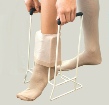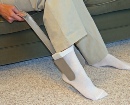www.thetinman.org Copyright © All rights reserved.

Disclaimer: The material presented in this site is intended for public educational purposes only. The author is not offering medical or legal advice. Accuracy of information is attempted but not guaranteed. Before undertaking any diet, or health improvement program, you should consult your physician. The author is in no way liable or responsible for any bodily harm, physical, mental or emotional state of any patient reacting to any of the content on this site. Thetinman.org has not examined, reviewed or tested any product or service mentioned herein. We are not being paid to advertise or promote any product or service mentioned herein. The links are offered strictly as examples of resources available. The site assumes no responsibility or liability of any kind related to the content of external sites or the usage of any product or service referenced. Links to external sites were live at the time of creation of the link. Thetinman.org does not create content for or manage external sites. The information can be changed or removed by the external site’s administrators at any time and they are responsible for the veracity of their information. Links are provided to support our data and supply additional resources. Please report broken links to administrator@thetinman.org. Thetinman.org is not a charitable foundation. It neither accepts nor distributes donations or funds of any kind.

Mobility issues can make dressing yourself challenging, especially if you have muscle weakness that makes pulling tops over your head or when pulling up pants or socks difficult.
Hang clothes at a height that is easy to reach. The height of the shelves or racks in the closet could be adjusted to meet your needs if you cannot raise your arms or are using a wheelchair.
Installing an adjustable closet system allows you to place shelves, hanging rods, hooks and drawers at accessible heights.
You can purchase adjustable clothing racks at your local home improvement stores or home organization stores.
Store clothing you wear most often in dresser drawers at a height that you can access easily. If you cannot reach lower drawers, consider placing the items in baskets on a shelf at a height you can reach.
Storables Decorative Storage Baskets
Lay out your change of clothes on a hanger(s) and take them into the bathroom with you. Hang the hanger on a doorknob, towel rack, or robe hook. Self-adhesive robe hooks are available so you can customize the height.
If you have trouble reaching your clothes, have someone else gather them for you. Laying them out the night before can save time in the morning. You could choose a week’s worth of outfits at one time and place them at a level you can reach.
Sit down when dressing if your balance is compromised. Do not try to sit on the edge of the bed to dress.
Using a stool can make it easier to reach your feet to put on shoes and socks.
Avoid socks with tight elastic.
There are several aids that can help you don socks.
Consider nonskid socks instead of house slippers that can slip off your feet.
Consider slip on clothing without fastens if you have difficulty with buttons and snaps.
Elastic waist pants are easier to slip on that those with zips or buttons.
Avoid pants with elastic ankle bands.
Consider slip-on shoes if you cannot manage the fastens or it is hard to get your foot into a shoe due to contracture.
Avoid backless clogs or sandals. It is too easy for your foot to slide off and twist your ankle while walking and could cause you to fall down stairs.
Avoid shoes with high heels, even low stiletto styles and wedges can be unstable.
Use a long-handled shoe horn to help you slip into your shoes.

Activeforever.com Stainless Steel Long-handle Shoe Horn
Buttons can be replaced with velcro. You may be able to utilize a button hook.

Ribbed-Handle-Zipper-Pull-Button
For necklaces and bracelets, consider adding magnetic clasps. Consider purchasing a longer necklace chain that can slip over your head for your favorite slides and charms.
Fire Mountaingems.com Magnetic Clasps
Consider zip-up tops if you cannot lift your arms over your head.
Decorative or plain zipper pulls can help you grasp the zipper.
You can purchase many decorative styles or make your own using ribbon or cording, with or without beads or dangles.
Custom Silicone Case.com zipper-pulls
You don’t have to limit your wardrobe to fleece jogging pants. There are attractive, elastic waist pants made by various manufacturers and offered in retail stores.
Fleece can be quite warm. If you sweat heavily, you might want to avoid fleece.
Cotton allows your skin to breathe and can be just as soft as fleece.
Choosing clothes with larger openings can make it easier to pull tops over your head or step into pants or shorts.
Dressing in light layers makes it easier to cope with body temperature changes throughout the day.
There is no reason to have to wear wear pajamas all day. Being well-groomed and dressed in day clothing can actually lift your spirits and put you in a more productive mood.
There are several stores that offer adaptive clothing for people with limited mobility and those that are wheel-chair dependent or bedridden.
Adaptive Clothing Showroom.com
Disability Resource.com Adaptive Clothing
If you need assistance getting dressed, it may be easier for your caregiver to help you put on pants, socks, and shoes if you are lying down.





DRESSING
Living with SPS Self Care Grooming Dressing Bedroom Safety Housebound/Bedridden
Kitchen,Cooking & Groceries Home Care Hiring a Service In-Home Care Exercise Mobility Driving
Managing Medications SPS & Pregnancy Organizing Information Financial Aid Legal Aid Mental Health
Anxiety & Depression Suicide Prevention Relationship Health Risk of Abuse Venting Caregiving